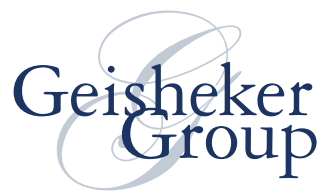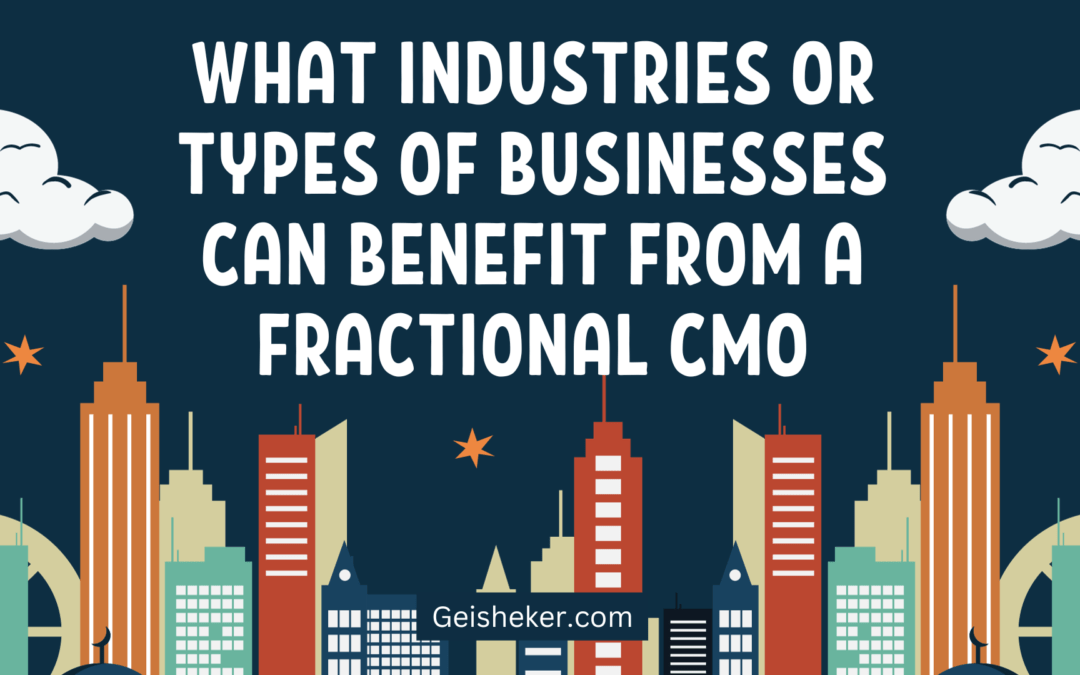The Meteoric Rise of the Fractional CMO
In today’s fast-paced and ever-changing business landscape, companies of all sizes are realizing the value of leveraging marketing expertise without the cost of a full-time CMO. Enter the fractional CMO – an experienced marketing leader available on a part-time, project, or retainer basis.
The concept of a fractional CMO has been growing in popularity over the past decade. Often small or medium-sized companies don’t require or cannot justify the expense of a full-time Chief Marketing Officer. However, they still have a strong need for strategic guidance and oversight of critical marketing functions. This is where a fractional CMO can provide tremendous value. They offer the experience and expertise of a CMO without the sizable salary and overhead.
A key benefit for many organizations is the ability to access enterprise-level marketing leadership on demand. Fractional CMOs are often seasoned professionals with 10-20+ years of experience leading marketing for major brands or agencies. This high-caliber talent brings an outsider perspective, specialized expertise, and proven methodology that delivers results.
So what types of industries and businesses stand to benefit most from engaging a fractional marketing executive? From high-growth startups seeking to scale to established companies looking to expand into new markets or revamp their marketing strategy, there are several scenarios where a fractional CMO can have an outsized impact.
High-Growth Startups
For founders and leadership teams immersed in the day-to-day grind of running their business, it can be challenging to step back and focus on big-picture marketing strategy. Startups often need to lay branding, positioning, and messaging foundations early. However, management bandwidth is typically devoted to product development, early sales, and financing.
This is where a seasoned fractional CMO can prove invaluable. They bring an objective outside view to help develop strategies and tailor positioning for target customer segments. A fractional CMO can build out foundational marketing frameworks when there is little existing infrastructure. With startup budgets tight, the flexibility of paying only for marketing oversight and services on an as-needed basis works well.
The focused, project-based nature of fractional engagements also allows startups to tap targeted areas of expertise. For example, tapping a fractional CMO with past IPO experience to guide messaging and communications strategies leading up to a public offering. Or identifying a fractional CMO specializing in branding and digital marketing to help craft content and track ROI across channels. The ability to align skill sets to specific growth goals allows high-growth startups to scale intelligently.
Medium-Size Enterprises
Often the most overlooked and underserved in terms of marketing talent, medium enterprises can benefit tremendously from fractional CMO services. Why is this middle segment – typically defined as $10 million to $1 billion in revenue – such an ideal fit for leveraging fractional marketing leadership? There are a few compelling reasons.
First, large enterprises have the resources to staff an in-house CMO and team with deep expertise. On the flip side, lean startups recognize the need to focus priorities on strategic marketing from the outset even with constrained budgets. Medium enterprises tend to land in no man’s land – often growing rapidly while relying on a small in-house team that lacks CMO-level skills and bandwidth to guide strategic marketing. Exacerbating this gap is that mid-size company budgets can rarely rationalize the salary demands of a top-tier global CMO.
This dilemma places medium enterprises squarely in the fractional CMO sweet spot. An experienced fractional CMO can oversee marketing strategy and planning not significantly different from a full-time executive. Except they do so in a model tailored to the scope, budget, and needs of a mid-size organization. For medium enterprises, it is far more affordable to pay a fractional CMO $10k – $25k per month than shell out $500k+ for a top marketing executive’s salary and benefits. And, the focused, on-demand model allows for flexibility as business needs ebb and flow.
Owners of mid-size private companies also lean heavily on fractional CMOs to drive growth ahead of potential acquisitions or a future IPO. Seasoned fractional CMOs have often led marketing for major public companies, so they bring invaluable perspectives to guide pre-IPO positioning and messaging.
Companies Expanding into New Markets
For enterprises that have established strong brands and market leadership domestically, expanding into new global markets brings an exciting mix of opportunity and complexity. While the business fundamentals may remain on solid ground in core legacy markets, effectively entering new countries and regions often requires a rethink of branding, messaging, and positioning.
This is another scenario where fractional marketing leadership really shines. Take a multi-billion dollar US software company looking to make inroads across Asia. An American-centric brand identity and messaging that resonated beautifully with North American customers may fall flat in Japan, Singapore, or Australia. Beyond language translation, successfully entering these new markets requires a savvy understanding of regional cultural norms and local competitor dynamics.
Rather than attempting to force-fit existing marketing strategies to these complex new markets, a fractional CMO with specific international go-to-market expertise can be hugely beneficial. This type of specialized experience simply may not exist within the current US-focused marketing team. Nor can it be justified to hire full international marketing teams before gaining initial traction. Engaging a US-based fractional CMO with a background in leading cross-country market expansions enables pragmatic entry at a manageable cost.
Revamping Strategy for Market Disruption
In times of major market upheaval, such as digital disruption transforming business models or once-stable sectors facing commoditization, even strong incumbent brands cannot rely on the status quo. Standing still while new competitors leapfrog with lower pricing, better technology or innovative services is a recipe for declining relevance.
Old guard companies including Kodak, Blockbuster, Barnes & Noble, Blackberry, and Sears failed to adequately respond to market threats. They clung stubbornly to the brand positioning and business metrics that drove past success while competitors rushed past and customers fled.
To avoid similar fates, established enterprises facing material disruption often benefit by engaging fractional marketing leadership. Seasoned CMOs serve as an unbiased litmus test to stress test branding and strategies against emerging marketplace realities. They can identify lingering flaws in positioning frameworks, or push leadership teams past institutional inertia holding onto outdated assumptions.
With no particular ties or loyalty to past precedent, fractional CMOs objectively gauge strategic marketing vulnerabilities and catalyze necessary transformations. The focused, on-demand model also allows enterprises to flex resources based on the scope of revamps required at various stages.
Private Equity Portfolio Companies
Given their financial orientation, Private Equity firms greatly value the ROI marketing generates when scaled effectively. However, many portfolio companies lack enterprise-grade marketing infrastructure or leadership to stimulate growth. A fractional CMO can efficiently realign marketing priorities around the metrics PE firms value without requiring major resource investment.
Since PE firms typically establish 3-5 year fund horizons upon acquiring a company, there is a finite duration to drive returns. The clock is always ticking. While aspects of the business like sales may organically ramp and scale, marketing often remains fragmented without executive vision to unify strategies and spending. This results in missed opportunities to accelerate growth during critical PE ownership windows.
Bringing in a fractional CMO to conduct an objective audit of marketing performance, competitive standing, and tactical priorities enables data-driven realignment. Rather than slowly ramping up an in-house team, fractional marketing leadership can hit the ground running on day one to optimize activities for growth. The ability to link marketing dollar investments directly to returns in the form of revenue growth and enterprise value resonates strongly with Private Equity owners. When the clock is ticking fast, fractional CMOs amplify marketing ROI.
Ownership/Leadership Transitions
Another pivotal scenario where on-demand marketing leadership drives major value is around ownership or executive transitions. Whether a founder decides to step back from daily management or sell the company outright, ushering in new leadership represents an inflection point. This changing of the guard often yields a fresh perspective on market positioning and strategic priorities.
Rather than rely solely on existing teams to realign, an unbiased fractional CMO brings an advisory role similar to an outside board member. They can objectively weigh past approaches against new opportunities to help shape evolved positioning. If a company founder who was intrinsically tied to messaging hands over the reins, reimagining branding requires both change management and strategic savvy.
In cases of outright acquisition, fractional CMOs help smooth messaging and market integration while larger organizational changes unfold. Even well-intentioned internal teams may struggle to adapt brand frameworks to the standards of a new parent company. Experienced fractional CMO guidance serves as a bridge during turbulent transitions.
The Rise of On-Demand Marketing Leadership
While only scratching the surface, the examples above demonstrate how many industry scenarios are primed to take advantage of fractional Chief Marketing Officer services. For both growing small businesses and multi-billion dollar global conglomerates, on-demand marketing leadership solves numerous strategic and tactical gaps.
Just as cloud-based software and gig-economy on-demand services now permeate nearly every aspect of business, fractional marketing executive talent offers similar flexibility and specialization for ambitious enterprises. Both early-stage and mature companies realize that clustered, focused oversight of marketing strategy in flexible models drives better results than fragmented legacy teams or expensive full-time CMOs.
We stand clearly at the dawn of a new era defined by the rise of the fractional CMO. Visionary founders, PE investors, boards, and executive teams recognize fractional CMOs provide fuel for growth without the friction of major resource investment. In our dynamic business landscape, leveraging experienced fractional marketing talent offers companies strategic agility to respond faster and more effectively.
While past barriers like accessibility to elite talent or misguided associations with interim staffing have slowed adoption, fractional CMOs now occupy a firm spot on the org charts of some of the world’s most innovative companies. Expect the on-demand model to proliferate across sectors as more organizations realize focused, executive-level expertise can drive transformational outcomes without full-time commitment. The future is fractional for marketing.
Hire a Leading B2B SaaS Fractional CMO
If your company needs a B2B SaaS fractional CMO, consider working with Peter Geisheker. Peter has been providing Fractional CMO services for over 20 years and has expertise in growth tactics and conversion optimization. View Peter’s B2B SaaS Fractional CMO case studies.


